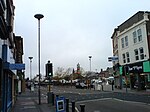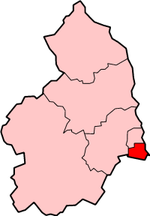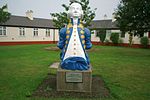Blyth Spartans A.F.C.
Blyth Spartans Association Football Club is an association football club based in Blyth, Northumberland. They are currently members of the National League North, the sixth tier of English football, and play at Croft Park. They were founded in September 1899 by Fred Stoker, who was the club's first secretary before forming a practice as a distinguished physician in London's Harley Street. He thought it appropriate to name the team after the Greek Spartan army in the hope that the players would give their all as they went into 'battle' on the field of play. The club is most notable for its 1977–78 FA Cup campaign, in which they went all the way to the fifth round, eventually losing to Wrexham in a replay at St James' Park.
Excerpt from the Wikipedia article Blyth Spartans A.F.C. (License: CC BY-SA 3.0, Authors).Blyth Spartans A.F.C.
Plessey Road,
Geographical coordinates (GPS) Address Nearby Places Show on map
Geographical coordinates (GPS)
| Latitude | Longitude |
|---|---|
| N 55.120852777778 ° | E -1.5111972222222 ° |
Address
Croft Park
Plessey Road
NE24 3JE , Crofton
England, United Kingdom
Open on Google Maps







